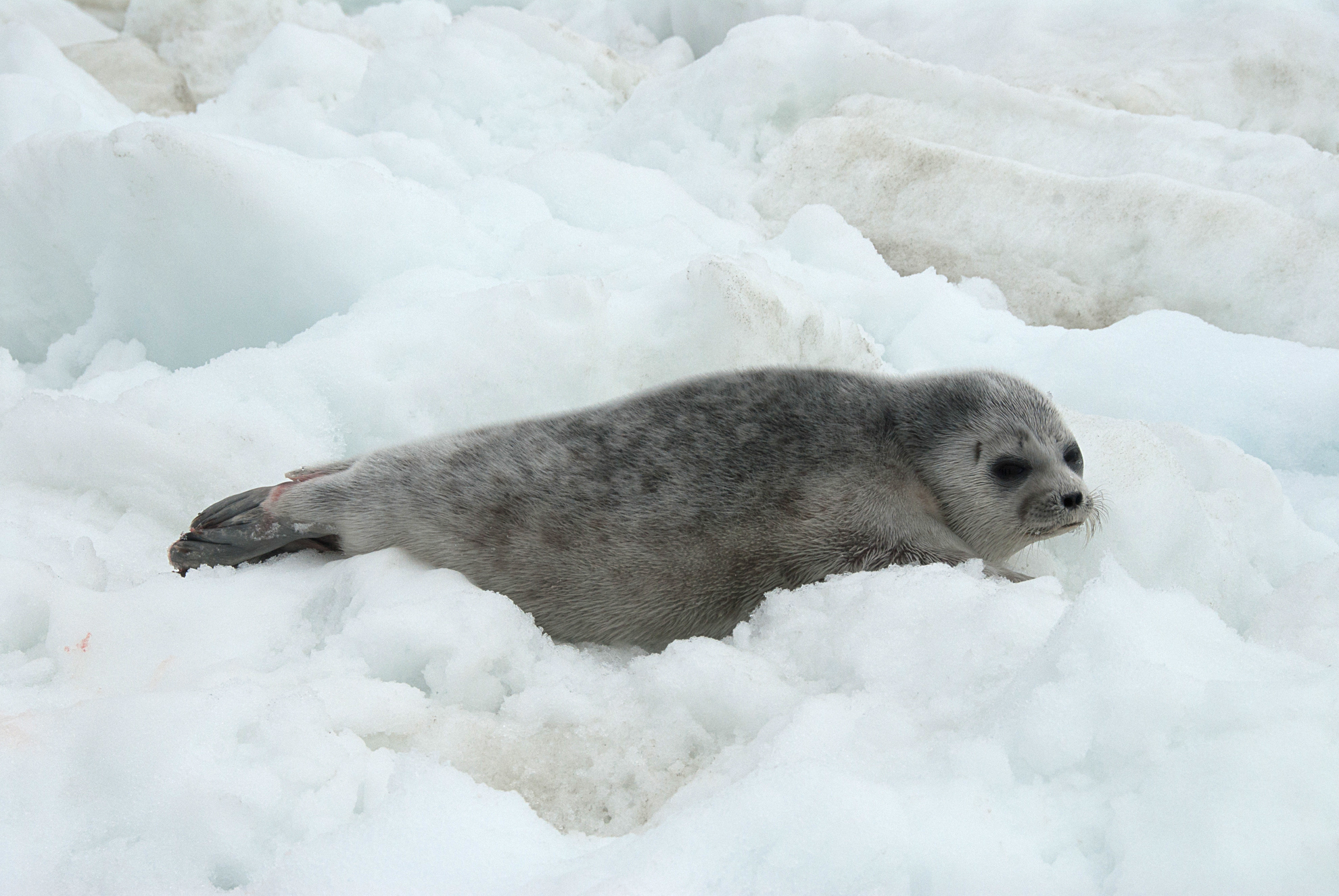US federal agency denies a petition to delist Alaska’s ringed seals
The National Marine Fisheries Service said the petition offered no evidence to justify ending protections for the ice-dependent seals.

Federal regulators on Wednesday rejected a petition from the state of Alaska and other entities to remove Endangered Species Act protections for Arctic ringed seals, marine mammals that are dependent on sea ice that is dwindling as the climate warms.
The National Oceanic and Atmospheric Administration’s National Marine Fisheries Service issued its 90-day finding upholding the current threatened listing.
“We find that the petition and information readily available in our files does not present new information or analyses that had not been previously considered and therefore does not present substantial scientific or commercial information indicating that the petitioned action may be warranted,” NMFS said in its notice, which was scheduled to be published in the Federal Register on Friday, Nov. 27.
The petition to delist was filed last year by the state, the North Slope Borough, the Arctic Slope Regional Corp. and the Inupiat Community of the Arctic Slope. The American Petroleum Institute and the Alaska Oil and Gas Association, representing an industry that operates in ringed seal habitat, supported the delisting petition.
[A new legal agreement sets a timeline for protecting ice-seal habitat in Alaska]
The delisting petition argued that NMFS vastly underestimated the resilience of the Arctic ringed seal population and its ability to adapt to changing conditions and that the agency’s projections of climate-change effects were too speculative.
The option of delisting is not off the table, however. NMFS said it is starting a five-year status review of the the Arctic ringed seal population and other ringed seal populations to determine whether the the current listings remain appropriate.
That status review, a routine process under the Endangered Species Act, was not triggered by the delisting petition, said Julie Speegle, a NOAA spokeswoman in Alaska.
The environmental organization that filed the petitions that led to the ringed seal listing, welcomed Wednesday’s decision.
“This recommendation underscores the strong scientific evidence showing that climate change threatens the ringed seals’ existence,” Kristen Monsell, ocean legal director for the Center for Biological Diversity, said in a statement. “Even the Trump administration can’t deny that these adorable little seals need the protections of the Endangered Species Act. Now the feds must stop approving drilling in their Arctic habitat.”
Eddie Grasser, director of wildlife conservation for the Alaska Department of Fish and Game and the official who signed the delisting petition, said the state is drafting a response.
Arctic ringed seals live off Alaska’s northern and northwestern coasts and are among several ice seal populations granted Endangered Species Act protections in 2012. The Alaska population was listed as threatened, along with Okhotsk and Baltic populations; the Ladoga population was listed as endangered.
The Endangered Species Act listings were warranted because Arctic climate change is undermining the sea ice the seals need for critical life functions, NMFS determined at the time.
In addition to using the ice, ringed seals need snow atop the ice. They dig lairs in the snow to use as protected areas for their newborn pups, but the warming Arctic climate bringing heat and rain that erases that snow layer.
The ringed seal listing has a long legal history.
The process started with a 2007 listing petition for a different species of ice seal, the ribbon seal. That helped kick off what was a review of all four species of Arctic ice seals. Ultimately, some listings were approved, though others were determined to be not warranted.
The ringed seal listing challenged in court by the state, the oil industry groups and others. It was struck down by a U.S. District Court Judge in 2016 but ordered reinstated by a 2018 ruling of the 9th Circuit Court of Appeals.
The bearded seal population off northern and northwestern Alaska is listed as threatened under the Endangered Species Act, a listing that has a similar legal history, though there is as yet no pending delisting petition for bearded seals.